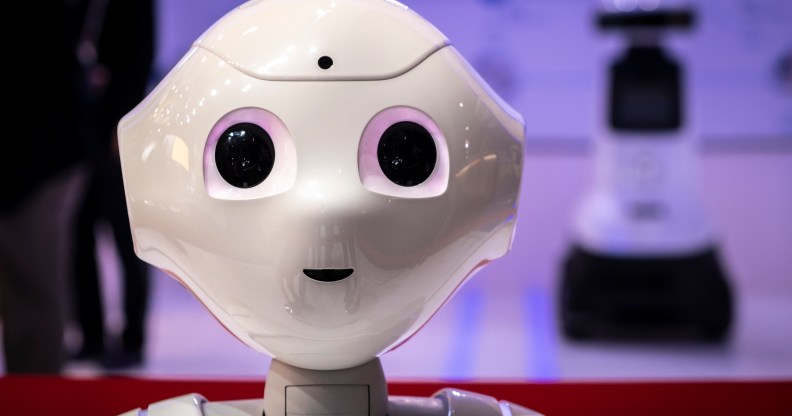More than 80 per cent of British people said their ideal ‘domestic robot’ would be gender-neutral

(Paco Freire/SOPA Images/LightRocket via Getty)
An overwhelming 82 per cent of British people have said that if they had a domestic robot, they would ideally like it to be gender-neutral.
Swedish software company Specops Software asked 2,424 British consumers about their opinions on robots to help around the home, and 39 per cent said that if they existed they would buy one.
The huge number of people that would want a gender-neutral robot is at odds with the artificial intelligence currently used by most people, specifically voice assistants which are often feminised.
Gendered artificial intelligence can cause problems and earlier this year a report by the UN showed how artificial female voice assistants like Siri, Alexa and Cortana reinforce harmful gender biases.
The report stated: “The subservience of digital voice assistants becomes especially concerning when these machines – anthropomorphised as female by technology companies – give deflecting, lacklustre or apologetic responses to verbal sexual harassment.”
For example, if Siri is told it’s “hot” it will respond: “You say that to all the virtual assistants?” If it’s told it is a “naughty girl,” it will reply with: “Hmm, I just don’t get this whole gender thing.”
The Specops survey also found that a majority of people would not want their robots to look like humans. 65 per cent said they would want them to look mechanical, and 53 per cent said they should be small and compact.
In terms of tasks that could be performed by the robots, respondents said the most effective use of a domestic robot was security and surveillance (82 per cent).
Six out of ten British people would not want the robot to be able to read their emotions, but 39 per cent said they would want a domestic robot to know if they were stressed, scared or happy.
Somewhat alarmingly, 35 per cent of people said that a robot would be useful for companionship, 24 per cent wanted it to give them guidance and advice, and six per cent even thought a robot could be put to good use as a form of childcare.
In September, a Catholic theologian said that gender-neutral robot priests could help tackle the sexual abuse crisis within the church.

